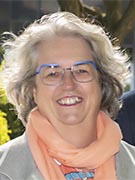Health-promoting intersectoral collaborations (so-called “Health in All Policies”/HiAP) involve coordinating on-going collaboration across government sectors and with organizations outside of government. What does that actually look like in practice? How do people involved with HiAP navigate the challenges and strengthen implementation?
In this webinar, we shared results from a research project which investigated how HiAP has been used over time in five local governments across Ontario and Québec. A detailed case study was presented of one of these initiatives: the Family and Social Development Policy in MRC des Maskoutains, a regional municipality in Québec. To consult the five policy briefs that were published as part of this research project, click here.
This webinar was organized jointly by the NCCHPP and the HARMONICS research team (HiAP Analysis using Realist Methods On International Case Studies), in collaboration with MRC des Maskoutains, a regional municipality in Québec. It was held on May 7, 2024
Intended Audience
This webinar was aimed at anyone in the public health sector, family and social services sectors, and allied sectors interested in HiAP/intersectoral initiatives at the local level.
Learning Objectives
By the end of the webinar, participants were able to:
- Recognize the diversity of forms that HiAP initiatives take at the local level;
- Describe the factors found to strengthen implementation of such initiatives.
PPT Presentations
Introduction
By Florence Morestin
15 slides
Health in All Policies Initiatives at the Local Level. What Do They Look Like, and How to Strengthen Their Implementation?
By Ketan Shankardass
24 slides
Health in All Policies Initiatives
By Elyse Simard
15 slides
Speakers
Webinar Recording
 Ketan Shankardass
Ketan Shankardass
Lead, HARMONICS Research Team
Dr. Ketan Shankardass is an associate professor in the Department of Health Sciences at Wilfrid Laurier University, where he leads the Health Equity Systems Interventions lab focused on developing upstream solutions that improve health equity. His current interests include multi-sectoral health equity governance (Health in All Policies – HiAP) and the development of neighbourhood resilience planning tools. Dr. Shankardass leads the HARMONICS research team (HiAP Analysis using Realist Methods On International Case Studies), which interviewed over 60 people across five local HiAP initiatives in Ontario and Québec between 2019 and 2021.
 Elyse Simard
Elyse Simard
Project Manager, Family
MRC (regional county municipality) des Maskoutains
Since joining the MRC des Maskoutains in 2015, I have developed the first “Age-friendly municipality” policy in the region and updated the Family and Social Development Policy at the level of the MRC and of participating rural municipalities. I participate in local issue roundtables in order to work collaboratively with organizations in the community to improve living conditions for residents. This has enabled the development of various projects in the MRC in the areas of early childhood, youth, and immigration. I first had a career in classical dance, which led me to manage dance schools and to organize cultural events. Later, to improve my management skills, I resumed studies in administration, with a specialization in management and accounting. I thus experienced the challenges of work-school-life balance before the concept even became popular. In the context of my management and public relations experiences in the private, public, and cultural sectors, I have held positions as project manager, political attaché for a member of a provincial legislature, school-board trustee, service coordinator, and member of various boards of directors and governing boards.
Facilitator
 Florence Morestin
Florence Morestin
Acting Coordinator and Scientific Advisor
NCCHPP
Florence has been a scientific advisor at the NCCHPP since 2009. Beginning in September 2023, she is the team’s Acting Coordinator. In this capacity, she contributes to the development and monitoring of the NCCHPP’s scientific program. Florence is trained in community health (M.Sc., Université de Montréal) and in political science (Institut d’études politiques d’Aix-en-Provence). Prior to joining the NCCHPP team, she worked in international public health for several years during which time she acquired experience in intervention in the field, in policy development, in research, and in knowledge sharing. In her role as a scientific advisor at the NCCHPP, Florence is responsible for the Knowledge Sharing project that focuses on ways of including public health knowledge in public policy development. She also contributes to the project Analyzing Public Policies.


